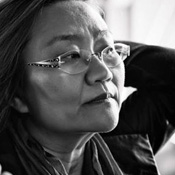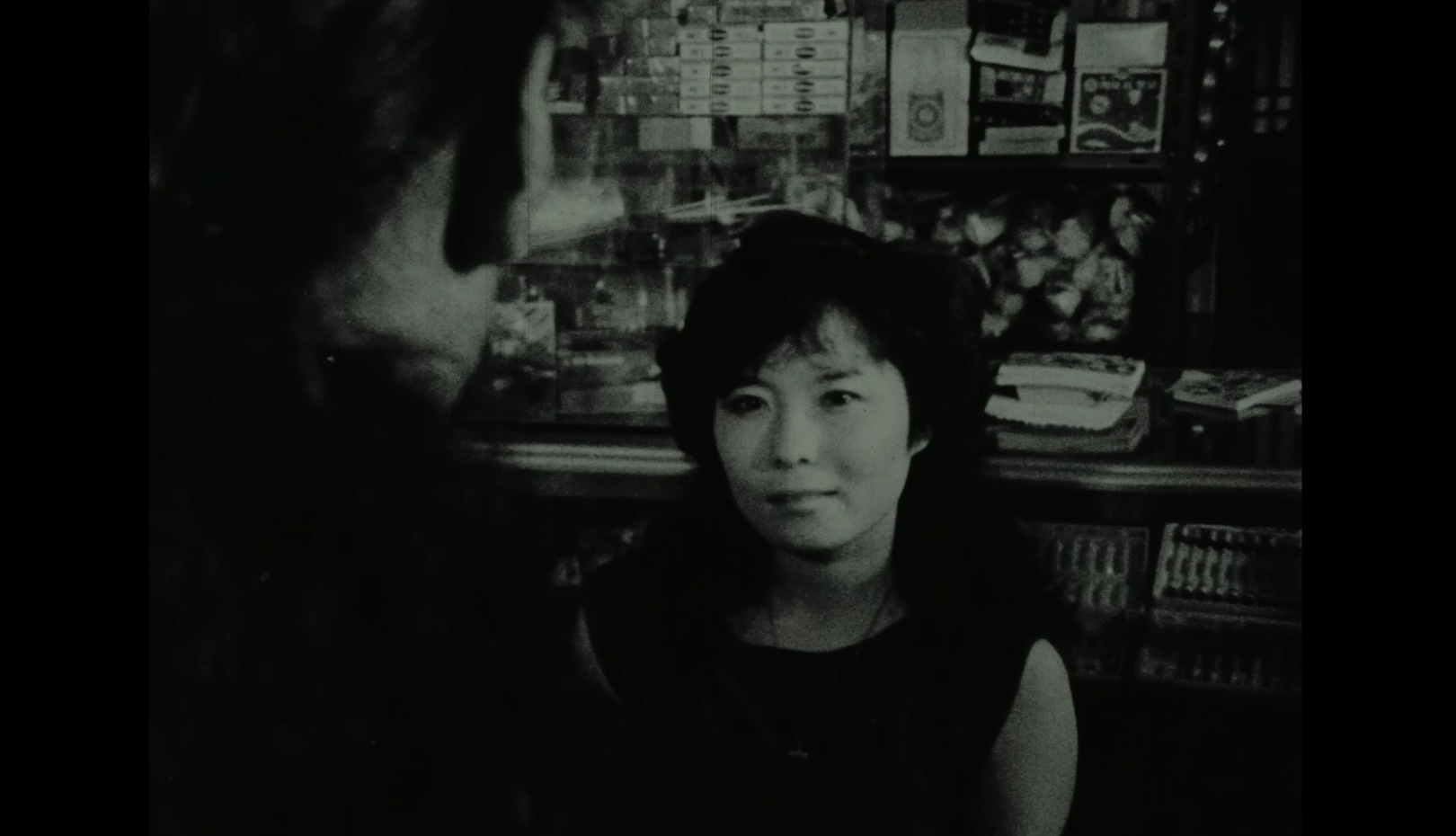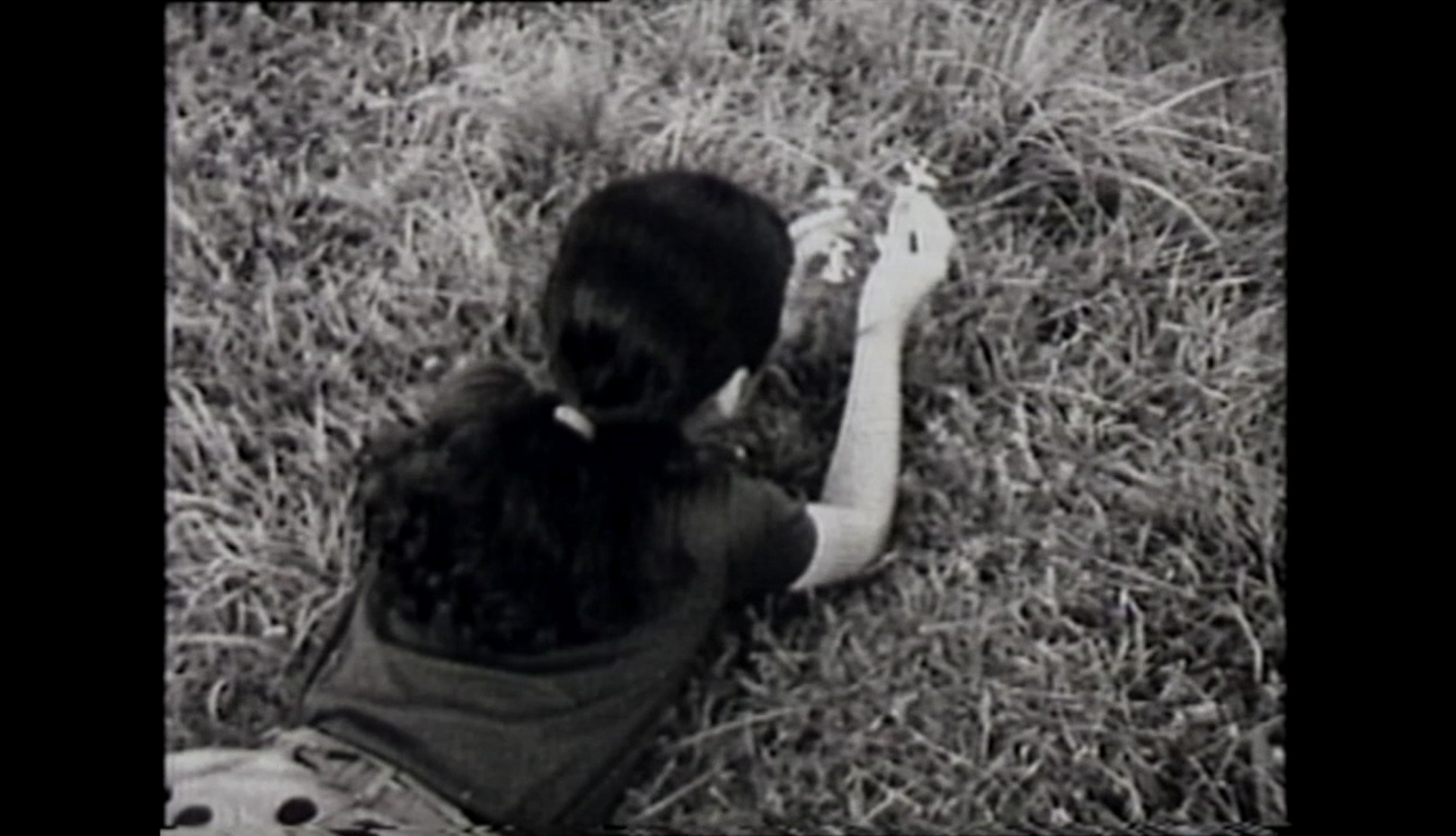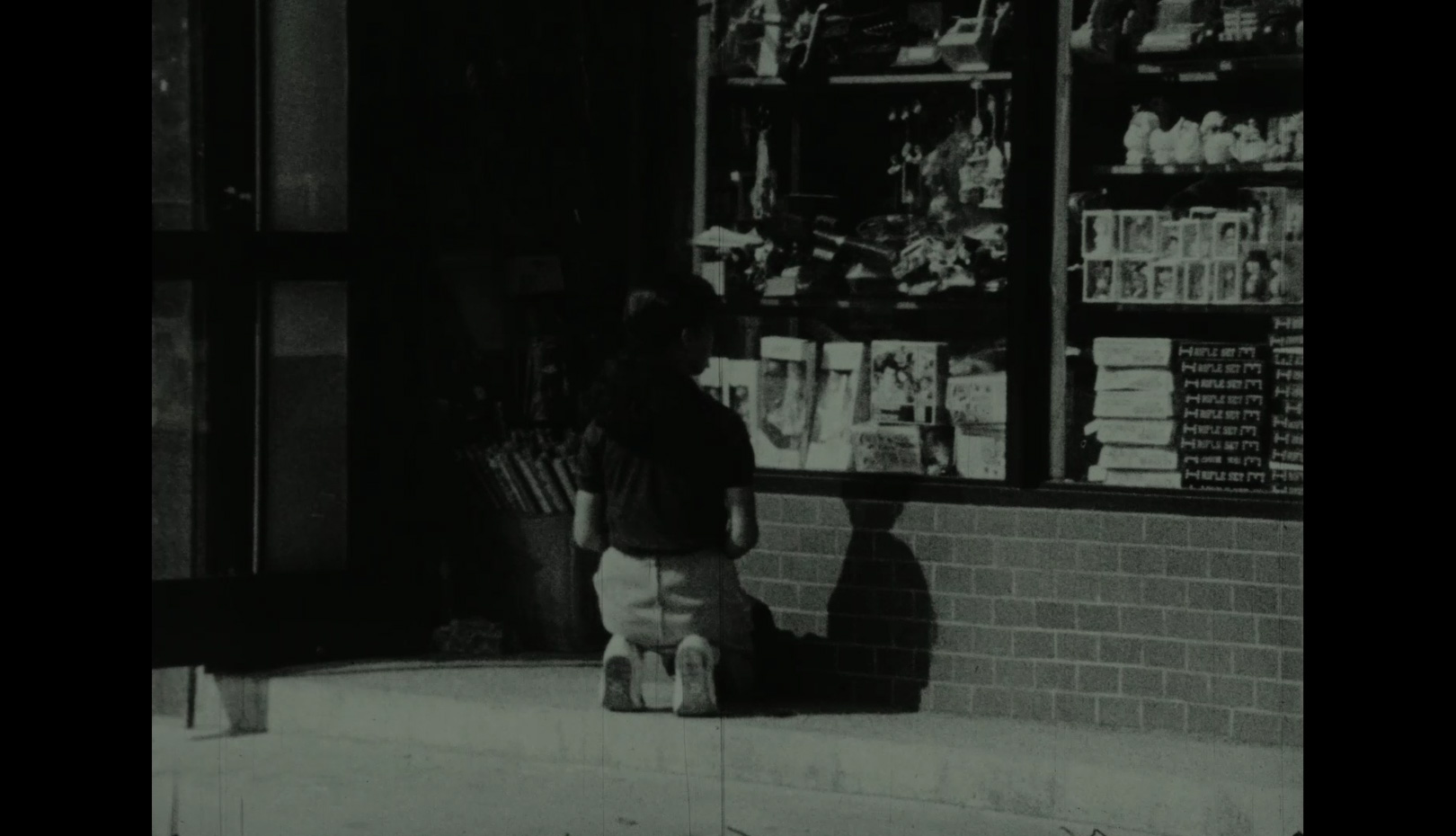22st(2020)
Blue Requiem
KIM Soyoung
- South Korea
- 1985
- 14min
- DCP
- black and white
- Experiment, Fiction
black and white / The Woman at the Toy Store / female relationship / queer / sexuality
SYNOPSIS
Synopsis
The author writes that at the moment the sun retrieved its last ray of light, the girl "sensed sensuality in the dark and watched death". The Woman at the Toy Store (OH Jeonghee) was transformed into a film, and the sexuality of the girl and woman gained the rhythm of requiem. The thrill of the moment when the positive changes to negative is, therefore, the sensuality of the cinema. Blue Requiem, the queer experimental work dedicated to the girl and the woman, arrived in the Winter Republic in 1986.
Program Note
When the film opens, a girl with her back to the camera appears. The camera is so close that it almost gets to the girl at first. Then the distance between her and the camera increases, and the camera halts its movement as she stops. Still, her face is not invisible. She turns her head away and looks into the camera. The camera just passes her by, and there is no one around her. The film makes the girl feel the contact with and severance from the people via presenting her relationships with other characters. In the last shot, we can see her appearance from the back. There is no one around her, and thus, the sense of her isolation is maximized. Yet she is making her way out of the lake with every attachment left behind. The camera doesn't (or can't) move. It only fades out into the full white blank screen. [LEE Yumi]
Director
-

KIM SoyoungKIM Soyoung
KIM Soyoung directed Women's History Trilogy (Koryu: Southern women/South Korea, I'll Be Seeing Her, New Woman: Her First Song) She also helmed the feature film Viewfinder (2010), and the documentary Drifting City about African traders in Guangzhou, China. She recently completed her Exile Trilogy, Goodbye My Love, North Korea, Heart of Snow, Heart of Blood and Sound of Nomad: Koryo Arirang.




